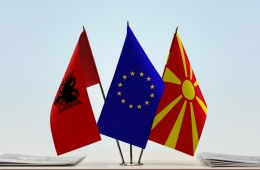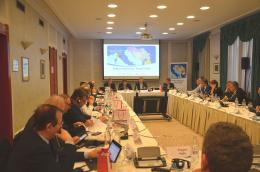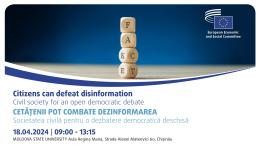European Economic
and Social Committee
Erweiterungsländer
Der EWSA ist aktiv am Erweiterungsprozess der EU beteiligt und hat einen zweifachen – regionalen und bilateralen – Ansatz für seine Beziehungen zu den Organisationen der Zivilgesellschaft in den Erweiterungsländern entwickelt.
Der Begleitausschuss Westbalkan – ein ständiges Arbeitsorgan des EWSA – ist das wichtigste Instrument des regionalen Ansatzes zur Koordinierung der Aktivitäten des EWSA in dieser Region. Im Rahmen seiner Tätigkeit veranstaltet der Begleitausschuss alle zwei Jahre ein Forum der Zivilgesellschaft des Westbalkans.
Der EWSA arbeitet auch auf bilateraler Basis mit den Ländern des Westbalkans und der Türkei zusammen. Auf der Grundlage der Assoziierungsabkommen zwischen der EU und der Türkei, Montenegro und Serbien hat der EWSA mit diesen drei Ländern gemeinsame Gremien mit Vertretern der Zivilgesellschaft eingerichtet, um die Organisationen der Zivilgesellschaft in die Heranführungs- und Beitrittsprozesse einzubeziehen. Jedes dieser Gremien setzt sich zu gleichen Teilen aus Mitgliedern des EWSA und des Partnerlandes zusammen und hält zweimal jährlich eine Sitzung ab.
Der EWSA steht in ständigem Kontakt mit den Organisationen der Zivilgesellschaft in den Erweiterungsländern, mit denen noch kein gemeinsames Gremium aus Vertretern der Zivilgesellschaft eingerichtet worden ist, und organisiert gemeinsame Aktivitäten mit ihnen.
Ergänzend zur Tätigkeit der gemeinsamen Gremien erarbeitet der EWSA Stellungnahmen zum Heranführungs- und Beitrittsprozess einzelner Länder sowie zu Themen von regionalem Interesse.









